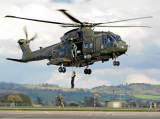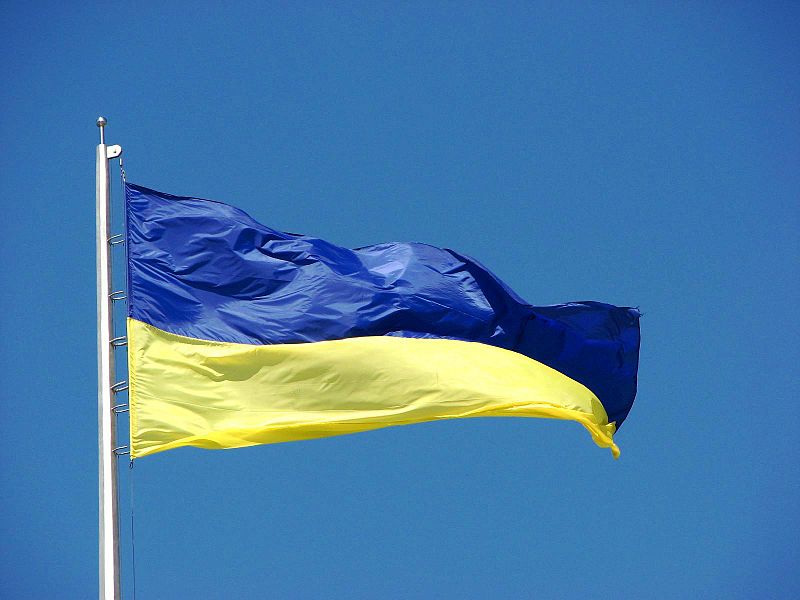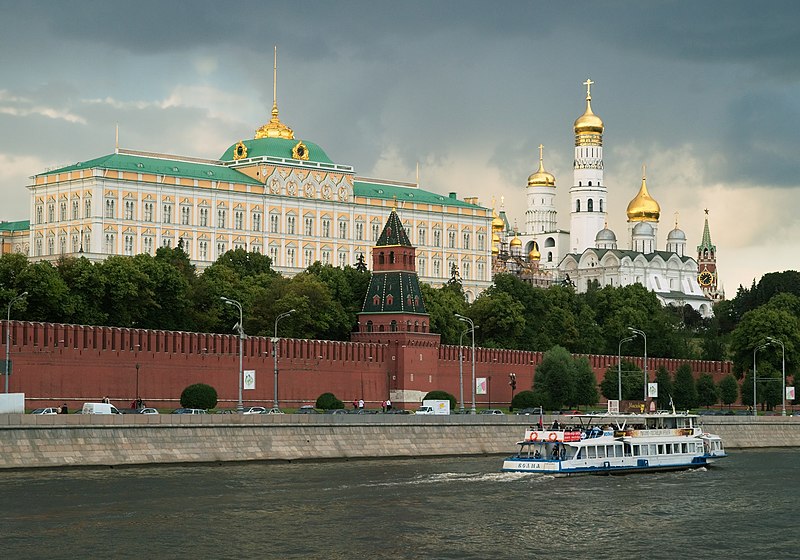UK News
-
 Royal Docks unveils UK’s first Circular Construction Hub, powering London’s path to Net Zero by 2030
London has taken a major step towards a greener future with the launch of the UK’s first Circular Construction Hub in the Royal Docks — a flagship project that aims toRead More...
Royal Docks unveils UK’s first Circular Construction Hub, powering London’s path to Net Zero by 2030
London has taken a major step towards a greener future with the launch of the UK’s first Circular Construction Hub in the Royal Docks — a flagship project that aims toRead More... -
 UK to introduce time-limited refugee status with reviews every 30 months
Refugee protection in the UK will move from a permanent model to a time-limited system, with all adult asylum seekers facing a formal review of their status every 30Read More...
UK to introduce time-limited refugee status with reviews every 30 months
Refugee protection in the UK will move from a permanent model to a time-limited system, with all adult asylum seekers facing a formal review of their status every 30Read More... -
 Greggs blames weak consumer confidence — not weight-loss drugs — for slowing sales growth
Britain’s biggest bakery and fast-food chain, Greggs, says softer consumer confidence is the main reason behind its recent slowdown in sales growth, pushing backRead More...
Greggs blames weak consumer confidence — not weight-loss drugs — for slowing sales growth
Britain’s biggest bakery and fast-food chain, Greggs, says softer consumer confidence is the main reason behind its recent slowdown in sales growth, pushing backRead More... -
 UK grocery inflation climbs back to 4.3% as food and household costs rise again
UK grocery inflation has ticked higher once more, reaching 4.3% in the four weeks to February 22, according to new figures from Worldpanel by Numerator.Read More...
UK grocery inflation climbs back to 4.3% as food and household costs rise again
UK grocery inflation has ticked higher once more, reaching 4.3% in the four weeks to February 22, according to new figures from Worldpanel by Numerator.Read More... -
 £1bn helicopter contract anchors 3,300 UK jobs and puts Yeovil at heart of global defence exports
A £1 billion defence contract awarded to Leonardo UK will secure thousands of skilled British jobs, strengthen the Armed Forces’ battlefield capabilities and open the door to as much as £15Read More...
£1bn helicopter contract anchors 3,300 UK jobs and puts Yeovil at heart of global defence exports
A £1 billion defence contract awarded to Leonardo UK will secure thousands of skilled British jobs, strengthen the Armed Forces’ battlefield capabilities and open the door to as much as £15Read More...

Culture
-
 UK music exports get £1.4m boost as 68 independent artists win global growth grants
Rising British music talent is set for a global push after 68 independent UK acts secured a combined £1.4 million in government-backed funding designed to grow international audiences, boostRead More...
UK music exports get £1.4m boost as 68 independent artists win global growth grants
Rising British music talent is set for a global push after 68 independent UK acts secured a combined £1.4 million in government-backed funding designed to grow international audiences, boostRead More... -
 Emery Walker revealed: new exhibition explores the man behind the arts and crafts legend
A new exhibition opening this spring at Emery Walker’s House sets out to restore depth, warmth, and personality to one of Britain’s most influential yetRead More...
Emery Walker revealed: new exhibition explores the man behind the arts and crafts legend
A new exhibition opening this spring at Emery Walker’s House sets out to restore depth, warmth, and personality to one of Britain’s most influential yetRead More... -
 London confirms St Patrick’s Day 2026 parade and Trafalgar Square festival
London will turn green once again next spring after the Mayor confirmed the capital’s St Patrick’s Day celebrations will take place on Sunday 15 March 2026, with aRead More...
London confirms St Patrick’s Day 2026 parade and Trafalgar Square festival
London will turn green once again next spring after the Mayor confirmed the capital’s St Patrick’s Day celebrations will take place on Sunday 15 March 2026, with aRead More... -
 Masterpieces beyond the Museum: National Gallery brings life-size art to communities ccross the UK
World-famous paintings from the National Gallery are stepping out of Trafalgar Square and into everyday life, as part of a major touring project that will seeRead More...
Masterpieces beyond the Museum: National Gallery brings life-size art to communities ccross the UK
World-famous paintings from the National Gallery are stepping out of Trafalgar Square and into everyday life, as part of a major touring project that will seeRead More... -
 Award-winning Polish writer Mariusz Szczygieł brings ‘Not There’ essay collection on UK tour
Polish writer Mariusz Szczygieł, one of Central Europe’s most acclaimed literary reporters, will tour the UK later this month with a series of public events marking the English-language release...Read More...
Award-winning Polish writer Mariusz Szczygieł brings ‘Not There’ essay collection on UK tour
Polish writer Mariusz Szczygieł, one of Central Europe’s most acclaimed literary reporters, will tour the UK later this month with a series of public events marking the English-language release...Read More... -
 Professor Dame Carol Black GBE reappointed as Chair of the British Library for 2026–2027
The UK Secretary of State has confirmed the extension of Professor Dame Carol Black GBE as Chair of the British Library, continuing her leadership from 1 September 2026 to 31 August 2027.Read More...
Professor Dame Carol Black GBE reappointed as Chair of the British Library for 2026–2027
The UK Secretary of State has confirmed the extension of Professor Dame Carol Black GBE as Chair of the British Library, continuing her leadership from 1 September 2026 to 31 August 2027.Read More... -
 Climate, community and care: Soma Surovi Jannat’s landmark exhibition at the Ashmolean Museum
From spring through autumn 2026, the Ashmolean Museum presents 'Soma Surovi Jannat: Climate Culture Care', a powerful new exhibition that places climateRead More...
Climate, community and care: Soma Surovi Jannat’s landmark exhibition at the Ashmolean Museum
From spring through autumn 2026, the Ashmolean Museum presents 'Soma Surovi Jannat: Climate Culture Care', a powerful new exhibition that places climateRead More... -
 Londoners on trial: 700 years of crime revealed in a free City archives exhibition
From medieval pickpockets to notorious Victorian figures, seven centuries of crime, punishment and public fascination are laid bare in a new exhibition atRead More...
Londoners on trial: 700 years of crime revealed in a free City archives exhibition
From medieval pickpockets to notorious Victorian figures, seven centuries of crime, punishment and public fascination are laid bare in a new exhibition atRead More... -
 Lost for centuries, Henry VIII’s golden love pendant finds a home at the British Museum
A golden heart pendant once symbolizing the doomed marriage of Henry VIII and Katherine of Aragon has finally been secured for permanent display at the BritishRead More...
Lost for centuries, Henry VIII’s golden love pendant finds a home at the British Museum
A golden heart pendant once symbolizing the doomed marriage of Henry VIII and Katherine of Aragon has finally been secured for permanent display at the BritishRead More... -
 British High Commission hosts Caledonian Ball in Lahore to celebrate growing Scotland–Pakistan partnership
The British High Commission brought a touch of Scotland to Lahore this week as it hosted the Caledonian Ball at the historic Sir Ganga Ram Residence, celebratingRead More...
British High Commission hosts Caledonian Ball in Lahore to celebrate growing Scotland–Pakistan partnership
The British High Commission brought a touch of Scotland to Lahore this week as it hosted the Caledonian Ball at the historic Sir Ganga Ram Residence, celebratingRead More... -
 300-year-old Rysbrack Marble putti blocked from export as UK scrambles to save national treasure
A three-century-old marble sculpture by renowned eighteenth-century sculptor Michael Rysbrack has been placed under a temporary UK export ban, giving BritishRead More...
300-year-old Rysbrack Marble putti blocked from export as UK scrambles to save national treasure
A three-century-old marble sculpture by renowned eighteenth-century sculptor Michael Rysbrack has been placed under a temporary UK export ban, giving BritishRead More... -
 Inside ICG PR: how an international PR agency shapes reputation for luxury, fashion, and cultural brands
Interview: the co-founder of Iris Consulting Group Iryna Kotlyarevska on building global visibility with cultural intelligenceRead More...
Inside ICG PR: how an international PR agency shapes reputation for luxury, fashion, and cultural brands
Interview: the co-founder of Iris Consulting Group Iryna Kotlyarevska on building global visibility with cultural intelligenceRead More...

British Queen celebrates
Most Read
- Teen held after US woman killed in London stabbings
- Heave-ho Harry! Prince prepares to join the walking wounded in ice trek to North Pole
- Football: Farhad Moshiri adamant Everton deal above board
- "Master of English Style". Interview with Designer Lydia Dart
- Letter to the Financial Times from Lord Mayor Alderman Michael Bear
World News

The European Union and China held their 23rd bilateral Summit via videoconference on 1 April 2022. President of the European Council, Charles Michel, and President of the European

On 29 March 2022, the European Commission carried out unannounced inspections at the premises of several companies in Germany active in the supply, transmission

The UK’s Defence Contribution in the High North outlines plans to protect critical underwater national infrastructure and ensure freedom of navigation through international seas and Exclusive

The Prime Minister will announce a major new package of support for Ukraine today at the NATO and G7 leaders’ meetings, as he calls on the international community

The Mayor of London will lead a march of thousands of Londoners and visitors to the capital this Saturday to send a message of solidarity to the people of Ukraine, as Ukrainian President

- UK at forefront of humanitarian response with 3.7 million medical donations to Ukraine

The Prime Minister will meet leaders in Abu Dhabi and Riyadh today [Wednesday 16th] for talks on energy, regional security and humanitarian relief, as he galvanises global action on the crisis

The Band of the Coldstream Guards and a Piper from 1st Battalion Scots Guards provided music for the service at the Commonwealth Memorial Gates service, while the State Trumpeters of

The Mayor of London, Sadiq Khan is demanding ministers take sanctioning Russian oligarchs seriously by moving immediately to seize assets that can then be sold to fund aid to Ukraine.

Quebec-based AMD Medicom Inc. ("Medicom"), one of the world's leading manufacturers of N95 respirators and medical grade surgical masks, joins the




















